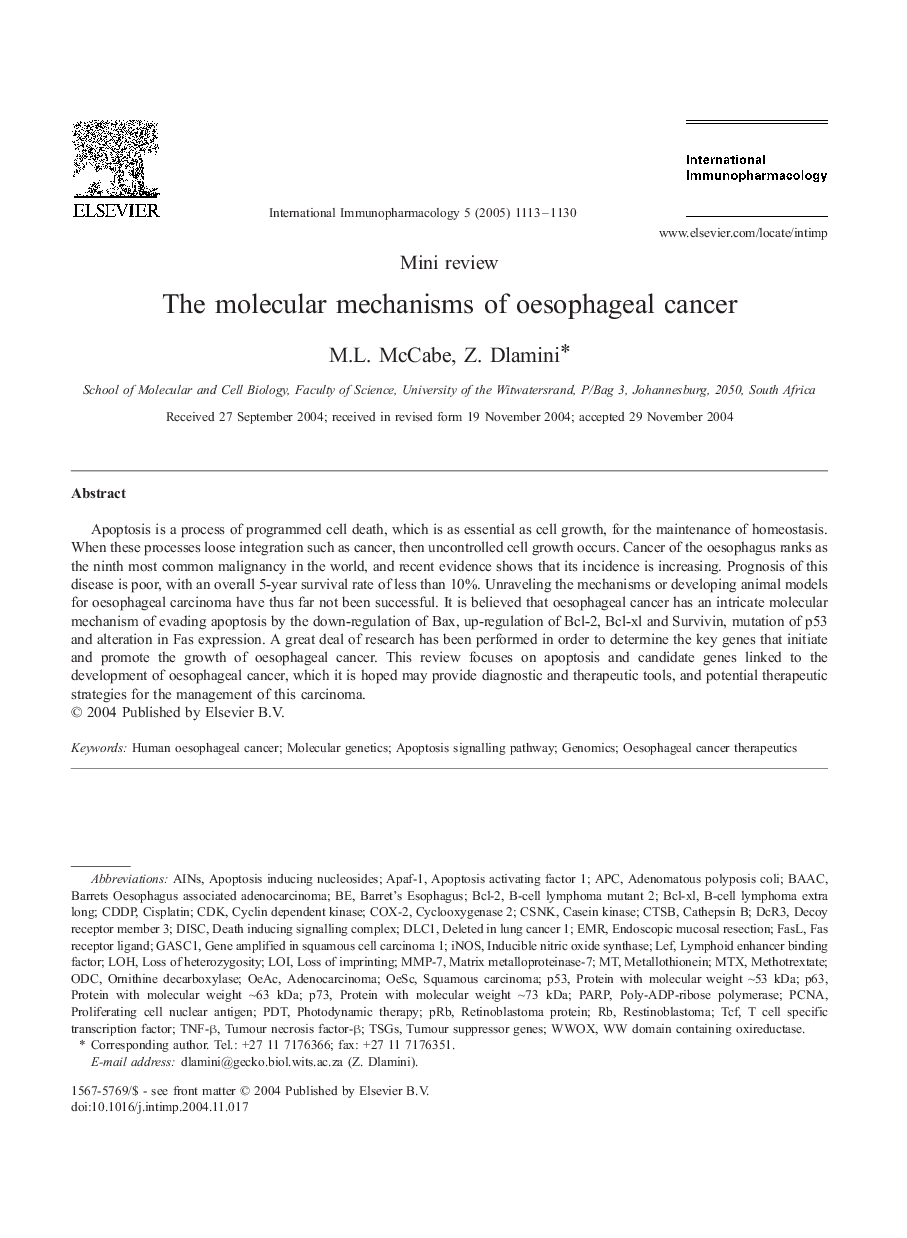| Article ID | Journal | Published Year | Pages | File Type |
|---|---|---|---|---|
| 9007823 | International Immunopharmacology | 2005 | 18 Pages |
Abstract
Apoptosis is a process of programmed cell death, which is as essential as cell growth, for the maintenance of homeostasis. When these processes loose integration such as cancer, then uncontrolled cell growth occurs. Cancer of the oesophagus ranks as the ninth most common malignancy in the world, and recent evidence shows that its incidence is increasing. Prognosis of this disease is poor, with an overall 5-year survival rate of less than 10%. Unraveling the mechanisms or developing animal models for oesophageal carcinoma have thus far not been successful. It is believed that oesophageal cancer has an intricate molecular mechanism of evading apoptosis by the down-regulation of Bax, up-regulation of Bcl-2, Bcl-xl and Survivin, mutation of p53 and alteration in Fas expression. A great deal of research has been performed in order to determine the key genes that initiate and promote the growth of oesophageal cancer. This review focuses on apoptosis and candidate genes linked to the development of oesophageal cancer, which it is hoped may provide diagnostic and therapeutic tools, and potential therapeutic strategies for the management of this carcinoma.
Keywords
PRBp63MTXCDDPCtsBp73Ornithine decarboxylaseODCaInsPARPBcl-xLDcR3DISCAPAf-1MMP-7TSGsEMRDeath Inducing Signalling ComplexCDKTNF-βp53lymphoid enhancer binding factorPCNAPDTCOX-2Bcl-2iNOSWWOXTCFAPCDLC1adenomatous polyposis coliAdenocarcinomaProliferating Cell Nuclear Antigenloss of heterozygosityLoss of imprintingendoscopic mucosal resectionPhotodynamic therapyinducible nitric oxide synthasecisplatincyclooxygenase 2FasLLOILefLOHMatrix metalloproteinase-7Metallothioneinretinoblastoma proteinpoly-ADP-ribose polymeraseTumour suppressor genesMolecular geneticsGenomicsCathepsin BSquamous carcinomacasein kinasecyclin dependent kinase
Related Topics
Life Sciences
Immunology and Microbiology
Immunology
Authors
M.L. McCabe, Z. Dlamini,
